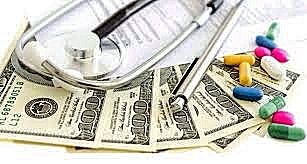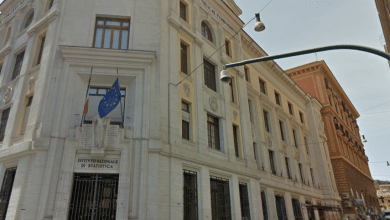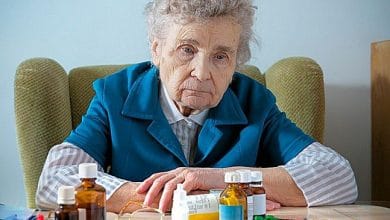
Asl Savona wands the GPs: "Too many useless drugs". And allocate a budget
Rome, April 3 – Ref Day – Pharmaceutical spending continues to fall, but the Ligurian ASL 2 of Savona is still not satisfied and has every intention of keeping the pressure on prescribing doctors up, setting a budget-limit for drug prescriptions (133.18 euros per year per patient). Anyone who exceeds it - which will inevitably happen, and very frequently - could be called to account for the excesses, motivating them.
The decision has obviously already aroused the reaction of family doctors, who speak of impositions that improperly interfere with the prescriptive choices, which are made by white coats in science and conscience: "It is right to monitor hyper-prescriptions and, even more so, erroneous ones" said the president of the provincial Fimmg Angel Tersidius "but the most effective weapon against these risks is not the impositions, but the updating of the doctor which ensures that the objective for a right therapy at limited costs is achieved".
But the director general of ASL 2, Eugenio Porfido, defends the choice of his healthcare company, basing it on expenditure data: the recommendations aimed at prescribing appropriateness led to savings of over 900 thousand euros in 2016, around 411 thousand  euros in 2017 and, according to the forecast budget presented a few days ago, could save another 628 thousand euros by the end of 2018.
euros in 2017 and, according to the forecast budget presented a few days ago, could save another 628 thousand euros by the end of 2018.
“All savings that don't disappear who knows where, but which, as happens in a public company, are reinvested in it” Porfido explained to the local press. “As regards the containment of drug spending, we have adopted a policy that pays attention not only to how much is spent but above all to how it is done. We have set a budget for general practitioners, it is true, but it is not that they will absolutely not be able to go further: however, they will be prompted to wonder whether it is really necessary to go beyond it and they will be able to be consulted in this sense ».
According to the director general of ASL 2 Savona, this choice will allow over the years to achieve savings in the order of 3.5 million euros, without detracting from patients in terms of therapies. And further savings, even higher, according to Porfido, would come from the reduction in costs for hospitalizations and other health services originating from pharmacological treatments prescribed and taken improperly.
Beyond this, the ratio of the decision of Asl 2 Savona sinks into the observation that many, too many prescriptions are useless: "For those with osteoporosis we record a very high consumption of vitamin D which, beyond a certain limit, is unjustified" explains Porfido with an example. “The level of absorption of this vitamin is in fact standard, in the sense that it does not depend on the quantity that I absorb: an increase in dosages beyond a certain value makes no sense. And here begins the waste”.
The "virtuous" prescriptions of doctors, moreover, according to the DG of the ASL should also take into account the methods of sale of the medicine: vitamin D has different prices if sold in the form of a vial rather than a phial or tablets (in this case could save up to 200 thousand euros). Hence Porfido's conviction that adopting a spending budget to which doctors will have to adhere can allow "to plan expenses better".
But the doctors argued back, rejecting any easy generalization about "cheerful prescriptions" and indeed reversing the perspective: “If I administer the right treatment to the patient” explains the provincial secretary Fimmg Tersidio "I can avoid hospitalizations which, for the ASL, would have much higher costs".
The Italian National Health System (NHS), established in 1978 to provide comprehensive and standard health coverage to all citizens and residents, was designed as based on three different levels: the central government, the 20 regional governments and the local health agencies ( Asl) with independent hospitals (AO). In particular, one of the founding principles of the NHS is that healthcare must be free at every delivery point in the area.
 The changed demographic, economic and social conditions, the growing introduction of pharmacological and technological innovations on the market, the consequences of the modification of Title V of the Constitution and the constant interference of party politics, have led the Health Service to be unable to offer the level of services standard defined by the Essential Levels of Assistance (Lea) especially for financial problems.
The changed demographic, economic and social conditions, the growing introduction of pharmacological and technological innovations on the market, the consequences of the modification of Title V of the Constitution and the constant interference of party politics, have led the Health Service to be unable to offer the level of services standard defined by the Essential Levels of Assistance (Lea) especially for financial problems.
In Italy, the debut of the term "sustainability" referring to public health dates back to 2012, when the then Prime Minister Mario Monti publicly declared that "The future sustainability of the NHS may not be guaranteed".
Moreover, after more than five years, health policy decisions continue to address the issue of sustainability by looking at a limited horizon, with attention perennially focused on the difficulties of accessing innovations, especially pharmacological ones, and on the length of the lists of expected, systematically neglecting the real health needs of the population, in particular those of the weakest socio-economic groups.
The problem of rising health care costs is real and has been the subject of much more solid analyses. This problem does not depend on the fault of the doctors or pharmaceutical companies, which even make money on health care: it is connected with the lengthening of the average life, a result that is also obtained thanks to increasingly better and more expensive diagnostic investigations and treatments. Modern healthcare is expensive because it can do a lot and everything it does has a cost. In the past we had fewer drugs available, fewer surgical interventions, fewer diagnostic tools: we did less and spent less. The average lifespan was also lower than at present. The aging of the population leads to an inevitable increase in pathologies with a consequent increase in costs, at the same time technological and pharmacological advances inevitably lead to an equally increased cost, all, however, in the face of cost containment.
Rhetorical statements such as "If you have a disease that needs special treatments and particular techniques to be treated, the State cannot fail to treat you, claiming a balanced budget" arise from the NHS spending containment policies (Cricket).
But could one really have thought that everything that has been done in these years of definancing of the NHS would have been without political consequences? In your opinion, people spend their days in the emergency room, doubled over, because there are no hospitalization beds (more than 71,000 beds have been suppressed since 2000) and nothing happens? Is there a lack of personnel in the services because the turnover was blocked and nothing happens? Are some territorial services closed, is the territory destroyed by merging the companies and nothing happens? Do waiting lists become tools of social selection and nothing happens? Are inequalities on life expectancy increasing and nothing happens? Do people pay tickets for everything (the 10% cannot afford it and the 33% of the "non-poor" renounces treatment for economic reasons) and nothing happens? Do exasperated people attack doctors and mean nothing?
With the programmed definancing, rationalization has become rationing to the point of harming the fundamental values of the system and is degenerating into subtle forms of counter-reform, the social demand for health can be compressed above all by administering consumption but the duty is paid.
Health policy has so far been about deregulating health care and even more against reforming it, because it has no different planning from definancing and rationalization because now by dint of scraping the bottom of the barrel, the bottom is no longer there. There hasn't been a shred of thought other than the historic administrativeism capable of reforming an idea of sustainability reduced to pure economic compatibilism, the Ministry of Health like an unconscious dreams of reducing medicine to a business and making use of the maximum flexibility of work.
But healthcare cannot be a company governed by algorithms or simple budget accounts, because healthcare has to do with sick people and people are all different from each other and pathologies cannot be reduced to simple and standardized times of care and hospitalization. The only action you take is to reduce ferociously the cost of pharmaceuticals and therapies, thus betraying the very reason for which the NHS exists, no one who thinks of reorganizing services, governance, rebalancing the labor market, rethinking work, co-responsibility of citizens, investing in innovation technology, etc. And no one raises the problem of the exorbitant weight that the administrative / accounting side has taken on in healthcare companies?
Without prejudice to the concept that waste and robbery, especially in Healthcare, are not tolerable, Dr. Porfido of the ASL2 of Savona, like many of his other "administrator" colleagues, does nothing but fuel populism, which is no longer such . It's a bit like those passengers in the ballroom of the Titanic who kept dancing to the sound of a small band, unaware that an impending tragedy would sweep them away.
Editorial
Related news: Growing health poverty: request for medicines +9.7%, assisted +4%
General and specialist medicine: tight times to secure the system, service at immediate risk
Doctors: cuts in healthcare responsible for the violence against healthcare workers





